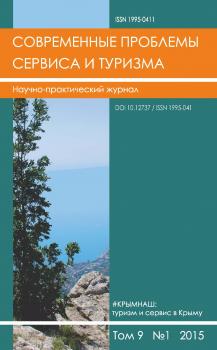The article considers the history of the domestic local lore in the Soviet period from of the “small geography” to the history of party building in a specific area (region) or the city. As a result, the scientific world regarded the local lore studies not as the fundamental knowledge, but as educational or monuments protection activities. Internet and mass tourism development engaged general public at the the process of geographical knowledge. Networked communities are replacing the territorial communities, and local lore is becoming a networked. The active tourism practices mix training with fun, adventure and search activities. It is assumed that the search for knowledge and understanding through active tourism will be the dominant theme of the education of the future. Ideology of local history lies in conservatism and catastrophism. The technosphere complication occurs with simplifying its diversity and growth of risk of a catastrophic outcome. In other words, all of the obsolete, outgoing and unnecessary in a critical mode may be the most necessary.
local lore, geography, people science, hiking, trekking, catastrophism, archaic, sport, survival.
1. Afanas'ev O.E. Tematiko-bibliograficheskiy ukazatel' publikaciy nauchno-prakticheskogo zhurnala «Sovremennye problemy servisa i turizma» za 2007-2016 gg. (toma 1-10): nauch.-sprav. izd. M.: Izd-vo RGUTIS, 2016. 78 s.
2. Bagrov N.V. Geografiya v informacionnom mire. K.: Libіd', 2005, 184 s.
3. Bogdanova M.A. «Gibkiy menedzhment samogo sebya» v kul'ture postmoderna // Kognitivnye issledovaniya na sovremennom etape: Materialy II Mezhdunar. nauch.-prakt. konf. Rostov-n/D., 2011. C. 276-284.
4. Boreyko V.A. Don Kihoty. Istoriya. Lyudi. Zapovedniki. M.: LOGATA, 1998. 298 s.
5. Gladkiy A.V. Ponimanie prostranstva v geografii i turizme: metodologicheskie aspekty // Tu- rizm i rekreaciya: fundamental'nye i prikladnye issledovaniya. Trudy VIII Mezhdunar. nauch.- prakt. konf. Tol'yatti: Povolzhskiy gos. un-t servisa, 2013. C. 61-70.
6. Gladkiy O.V. Appercepcіya prostoru, її lyudyanіst' ta lyudinovimіrnіst' // Ekonomichna ta social'na geografiya. 2013. Vip. 2(67). C. 19-28.
7. Grigor'ev Al.A. Geografiya vsemirnogo naslediya. SPb.: Asterion, 2012. 344 s.
8. Kaluckov V.N. Osnovy etnokul'turnogo landshaftovedeniya. M.: Izd-vo MGU, 2000. 96 s.
9. Myagkov S.M. Geografiya prirodnogo riska. M.: Izd-vo MGU, 1995. 224 s.
10. Preobrazhenskiy V.S. Bytiynyy geografizm i geograficheskaya nauka // Izv. RAN. Ser. geogr. 1993. №3. C. 40-54.
11. Ragulina M.V. O sinteze gumanitarnyh i estestvennonauchnyh podhodov v issledovanii kul'- turnogo landshafta // Izvestiya RAN. Ser. Geogr. 2014. №1. S. 7-13.
12. Smirnyagin L.V. Metodicheskie podhody k rayonirovaniyu v obschestvennoy geografii // Vest- nik MGU. Ser. 5. Geografiya. 2011. №6. S. 13-19.
13. Toffler E. Tret'ya volna. M.: AST, 2010. 784 s.
14. Barlow J.P. A Cyberspace Independence Declaration. 1996. URL: http://w2.eff.org/Censorship/Inter- net_censorship_bills/barlow_0296.declaratio (data obrascheniya: 15.01.2017).
15. Haklay M. Citizen Science and Volunteered Geographic Information: Overview and Typology of Partici- pation // Crowdsourcing Geographic Knowledge Volunteered Geographic Information (VGI) in Theory and Practice. New York, London: Springer Dordrecht Heidelberg, 2013. Pp. 105-122.
16. Galloway A.R. Protocol: How control exists after decentralization. Cambridge, MA.: MIT Press, 2004. 260 p.
17. Goodchild M.F. Citizens as Sensors: The World of Volunteered Geography // The Map Reader. 2011. Pp. 370-378. DOI:https://doi.org/10.1002/9780470979587.ch48.
18. Managing Critical Disasters in the Transatlantic Domain. The Case of a Geomagnetic Storm. Workshop Summary / Ed.: Fugate W. Craig. Boulder, Colorado: FEMA, 2010. 26 r.
19. Pelton J.N., Singh I., Sitnikova E. Cyber Threats, Extreme Solar Events and EMPs // Inside Homeland Security. 2015. 3(18). Rp. 1-10.





